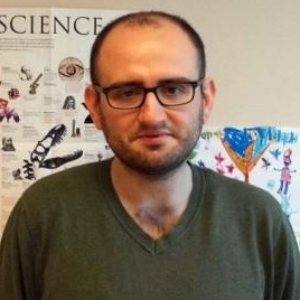Abstract:
In this talk, the potential of cfDNA genotyping on diagnosis and prognostication of follicular lymphoma (FL) will be presented. As a frequent non-Hodgkin lymphoma type, FL is generally indolent with a variable clinic presentation including asymptomatic as well as symptomatic cases. However, it may transform to more aggressive B cell lymphomas with poor prognosis. Its diagnosis typically involves immunohistochemical, morphological, or genetic characterizations of biopsies that require invasive interventions. These invasive procedures may pose certain risks to patients including pain or infection. Depending on the anatomical location and size of tumor tissues, it may be difficult to obtain enough tumor tissue for diagnostic evaluations. Moreover, tumor samples obtained may not fully represent the genetic heterogeneity in different sites of the same tumor tissue or different tumors in the body. To overcome these problems, we investigated the genotype of cfDNA in treatment-naive FL cases using an ultra-deep targeted next-generation sequencing panel including 110 FL-related genes. Of significance, cfDNA concentrations and the extent of overlap of somatic variants in patient-matched cfDNA and tumor tissue DNA were higher in symptomatic cases compared to asymptomatic ones. This observation suggest that cfDNA analyses may provide more useful clinic information for symptomatic FLs. Furthermore, targeted NGS revealed the presence of tumor-associated somatic mutations such as KMT2D R2417* and EZH2 Y646F in cfDNA of FL patients. Given that pre-clinic and clinical investigations of EZH2 inhibitors showed anti-cancer efficacy against EZH2-mutant bearing tumors, FL patients with the EZH2 mutations in cfDNA may be suitable for EZH2 targeted therapy. We observed that high cfDNA concentrations or presence of BCL2 mutations were significantly associated with shorter survival. BCL2 mutation evaluations in cfDNA improved the prognostication potential of certain poor-prognosis associated variables used in routine clinics. Intriguingly, one of the FL patients with progressive disease contained mutations in early progression-associated genes exclusively in cfDNA at the diagnosis stage. If this observation can be reproduced in other FL patients, it may be possible to identify FL patients at high risk by applying a non-invasive blood test based on cfDNA genotyping. Altogether these observations suggest the potential of plasma cfDNA evaluations for improved diagnosis, prognostication and targeted therapy of FL.
Audience Take Away Notes:
- The audience will have a better understanding on the significance and advantages of non-invasive clinic evaluations in cancer.
- The audience will gain insight into the potential of cfDNA genotyping on improving diagnosis, prognostication, and targeted therapy of follicular lymphoma.
- Other faculty may shape their future research on cfDNA and follicular lymphoma based on the results presented in this talk.
- The audience may apply the methodologies mentioned in this speech in their own research.




